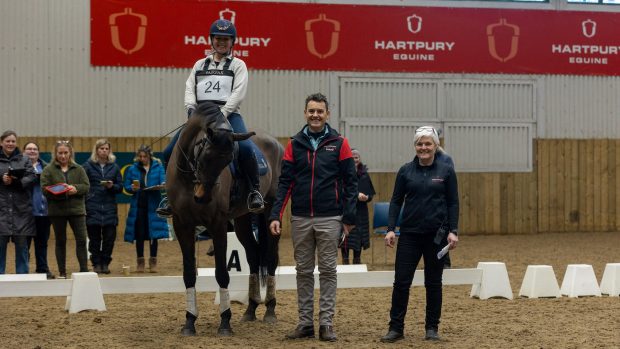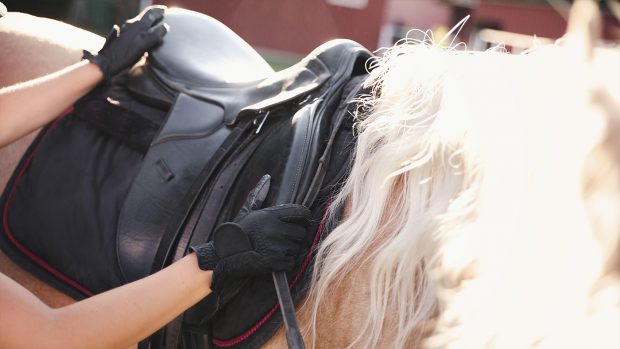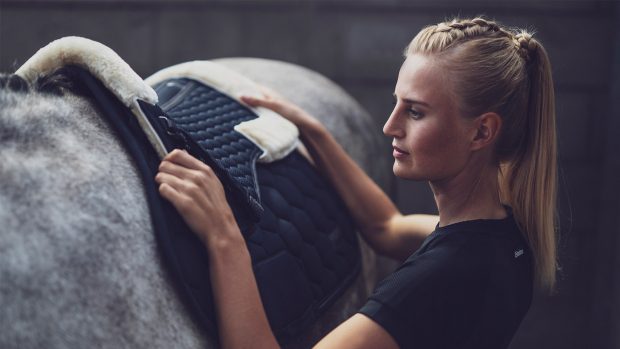A new saddle study has shown an unexpectedly high degree of lameness in sport horses — with nearly half of those assessed being lame or stiff.
Dr Sue Dyson, head of clinical orthopaedics at the Animal Health Trust (AHT) and Line Greve, a PhD student, looked at 506 working sport horses. They were all assumed by their owners to be sound.
The horses were videoed in-hand and ridden, including in 20m circles in both trot and canter. The study showed 46% of horses were lame or had a stiff, stilted canter.
Dr Dyson said she was “shocked” by the results.
Saddle slip occurred in 12% of all the horses studied — mainly in those with hind limb (30%) as opposed to forelimb lameness (5%).
“The results showed that horses with hindlimb lameness and gait abnormalities are more than 50 times more likely to have saddle slip than other horses,”said Line Greve.
With nearly half of those studied being lame, Ms Greve said many horses with lameness “are clearly going unnoticed”.
She added that the study shows further education of riders and trainers is needed to help them identify saddle slip as an indicator of lameness.
The new study reinforces previous research published in 2012, which showed hindlimb lameness is often the cause of saddle slip (news, 25 October 2012 and vet, 13 December 2012).
That study, carried out on horses at the AHT, concluded the saddle consistently slipped to the side in 54% of horses with hindlimb lameness.
Anne Bondi, director of the Saddle Research Trust — which supported the AHT in both studies — says all riders should be aware their horses might not be as sound as they assume.
“Saddle slip can be an early warning of a problem with a horse,” she warned.
The full results of the study will be presented at the second Saddle Research Trust International Conference, held on 29 November at Anglia Ruskin University, Cambridge.




